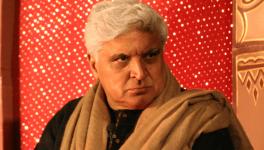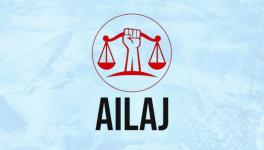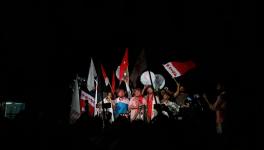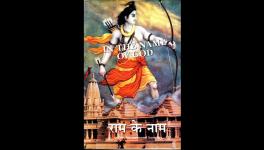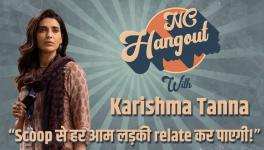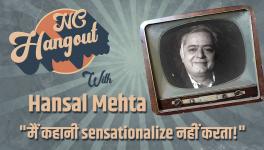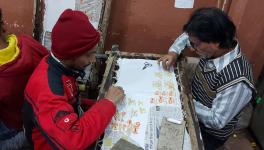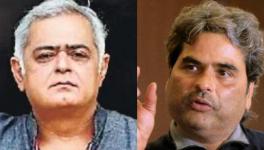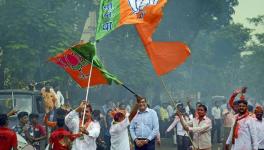Time to Reclaim Your Identity, Religion From Bigots: Hansal Mehta on His New Film ‘Faraaz’

Image Courtesy: Wikimedia Commons
The filmmaker’s new film ‘Faraaz’ is based on the July 2016 terror attack on a bakery in Dhaka that killed 29 people.
New Delhi: The only way he knows to counter or have a conversation about bigotry is through telling stories, says filmmaker Hansal Mehta who goes about doing just that in his new film “Faraaz” based on the July 2016 terror attack on a bakery in Dhaka.
Told through the course of a night, the story takes viewers back to when a terror strike in Dhaka’s Holey Artisan Bakery killed 29 people, including 20-year-old Faraaz Hossain who refused to leave his two friends behind even though he had the option to escape.
Mehta, who considers himself a “chronicler of our times through stories of ordinary people", said his film is the story of today's youth and the need to understand them.
“The time has come to reclaim your identity and religion from bigots,” the “Shahid” and “Aligarh” director told PTI.
“Faraaz”, slated to be released in India on February 3, marks the screen debut of Shashi Kapoor’s grandson and Kunal Kapoor’s son Zahan Kapoor in the title role.
" 'Faraaz' means somebody who stands tall. It is actually the theme of the film, standing tall in these times. He is not the classic Hindi cinema protagonist. He, in fact, begins to talk in the film almost after 40 minutes. You follow the night and through that night, you see an act of unlikely bravery of an ordinary guy,” Mehta said.
"I wanted to talk to people that as an ordinary person, it is just about raising the voice even in the most difficult of times."
At one point in the film, the protagonist says, "I want my Islam back from people like you."
The line, in Mehta’s view, could fit any religion.
"You replace it with any religion... The only way I know to counter or have a conversation about bigotry is through telling stories," the director said.
Was there danger of the film becoming about the "good Muslim versus bad Muslim" debate?
"This debate has been co-opted by the people who want to spread misinformation against Islam. They have created this bad impression of the religion and the people who can argue against that are not talking. That’s dangerous...
"If there are uncomfortable conversations, we don’t pursue these uncomfortable conversations. That's why we are in this state. The popular discourse has been co-opted by the very forces that you want to counter. You can’t counter them with your complete silence, you can’t give up."
According to the director, “Faraaz” revolves around a terror attack and talks about a particular religion but it is about bigotry in general. As a "liberal voice", he said, it's important to participate in the
"Replace it with any other religion. My issue is that there should be no violence in the name of religion. If your identity is connected with your religion then how can it be connected to violence? “Which religion preaches violence? Which religion tells you to be a bad human being in order to be a Hindu, Christian or Muslim. That’s my fight. And I will keep fighting that through cinema," Mehta said.
Filmmaker Mahesh Bhatt was the one who suggested that Mehta should make “Faraaz”.
There was some trolling with people saying Mehta should not be the one to tell a story about Bangladesh. He has a ready answer to that.
"My argument is that language and geography cannot be a barrier in my telling of a story. It's a global story. It's not a local story. Those who say, 'How can you tell our story?' My counter is, the same way there are stories of 26/11 (Mumbai terror attacks) and the Holocaust."
The director said his intent with the story of "Faraaz" was to start a conversation about today's times.
"...To understand how destruction in the name of religion creates so much grief. The film is done with utmost sincerity. Rather than capitalising on grief, it’s an attempt to process that grief and become a part of empathy that the victims of this attack deserve."
Mehta said Zahan’s casting was quite accidental.
“He is a very quiet boy. I used to see him regularly at Prithvi Theatre... when Faraaz’s story came to me, I felt there were echoes of that person in him. It’s not a conventional launch vehicle. But he wanted to do that, that was his hunger. I liked that,” the director said.
Zahan’s face resembles his grandfather, considered one of the most handsome actors of Hindi cinema, and that look helped in fleshing out the character.
“The thing that his grandfather has given him is on his face. He is a beautiful boy. He is very appealing and draws the vulnerability of the character out.”
The film also stars Aditya Rawal, son of actor Paresh Rawal, Aamir Ali and Juhi Babbar.
“Faraaz” has been produced by Mehta’s good friend filmmaker Anubhav Sinha through his Benaras Media Works and Bhushan Kumar's T-Series.
Get the latest reports & analysis with people's perspective on Protests, movements & deep analytical videos, discussions of the current affairs in your Telegram app. Subscribe to NewsClick's Telegram channel & get Real-Time updates on stories, as they get published on our website.









